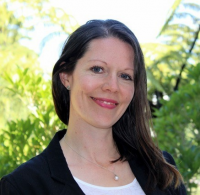
Food & Mood Workshop – exploring the role of nutrition in wellbeing
The Ancestral Health Society of New Zealand is hosting a public event on Saturday, 8 September at Massey University’s Wellington campus bringing together two of the world’s leading researchers in the field of Food, Mood, and Nutritional Psychiatry.
The keynote speakers at the Food & Mood event, Professor Felice Jacka
Professor Felice Jacka, Director of the Food and Mood Centre (Deakin University) and Founding President of the International Society for Nutritional Psychiatry Research (ISNPR), ran the first
Professor Jacka pioneered and expedited the development of a robust body of evidence regarding the influence of lifestyle
Professor Julia Rucklidge leads the Nutrition and Mental Health Research Group (University of Canterbury). Her research has focused on the role of micronutrients as a therapy for various mental health experiences. Her interest in nutrition and mental health grew out of her own research showing poor outcomes for children with significant psychiatric difficulties despite receiving conventional treatments for their conditions.
In the last decade, she and her lab has been running clinical trials investigating the role of broad-spectrum micronutrients in the expression of mental health concerns, specifically ADHD, mood disorders, anxiety and stress associated with the Canterbury earthquakes.
She was the recipient of the Ballin Award 2015 from the NZ Psychologist Society, an award that
“With depressive disorders the leading source of disability globally, the identification of new targets for prevention and management is imperative. The last hundred years have seen major shifts in dietary intakes globally, with a marked increase in the consumption of sugars, snack foods, takeaway foods and high-energy foods. At the same time, the consumption of nutrient-dense foods, such as animal products, vegetables
Unhealthy diet, as a key contributor to the high prevalence of noncommunicable diseases, is now
Co-founders of the charitable social enterprise Wellbeing Wellington, Andrea Bates and Sarah O’Connor, will follow these talks with a practical discussion about
“Our aim is to provide an event with a sense of community, discussion, understanding and useful information that can assist participants to enhance their wellbeing, rather than simply lecture on it.”
ENDS
Event Details: https://ancestralhealthnz.org/event/food-mood-wellington/
ABOUT THE ANCESTRAL HEALTH SOCIETY OF NEW ZEALAND
The Ancestral Health Society of New Zealand (AHSNZ) aims to foster collaboration among scientists, health professionals
The Ancestral Health Society of New Zealand – Te Kauwhata Tūhauora o Aotearoa – is a fully incorporated not-for-profit society, existing with the core aim of fostering interdisciplinary collaboration between scientists, healthcare professionals, organisations and laypersons that study and communicate about human health and the human ecological niche from an evolutionary perspective in order to develop solutions to New Zealand’s current and future health challenges.
The AHSNZ aims to promote research and disseminate knowledge relevant to the health and other benefits of an ancestral lifestyle, providing a high level of robust scientific evidence to support the views and aims of all those individuals who make up the society and who believe that our individual lives and the health of our country as a whole can be improved by taking such an approach.
Whilst the Ancestral Health Society of New Zealand (AHSNZ) shares many of the same visions, values, and inspirations with other Ancestral Health Societies around the globe, and works in a collaborative manner with them, there are no financial or other formal links to them.

